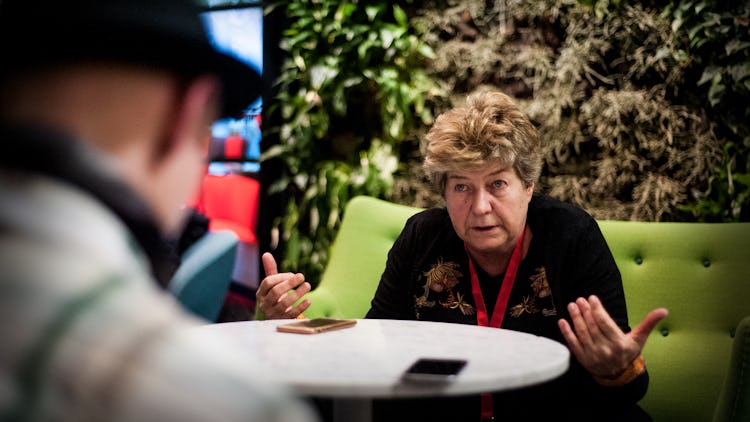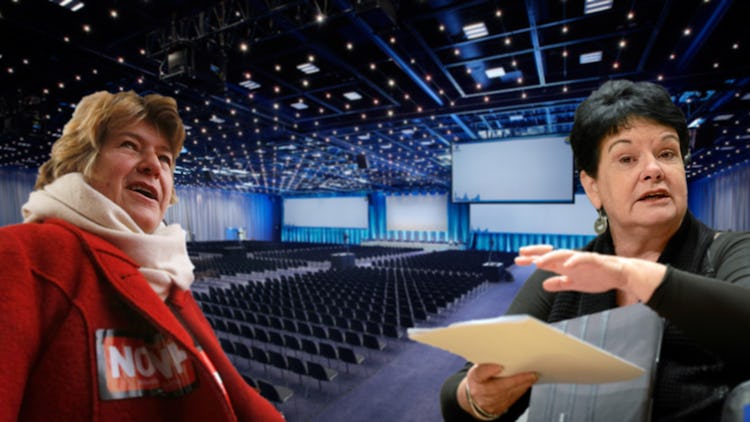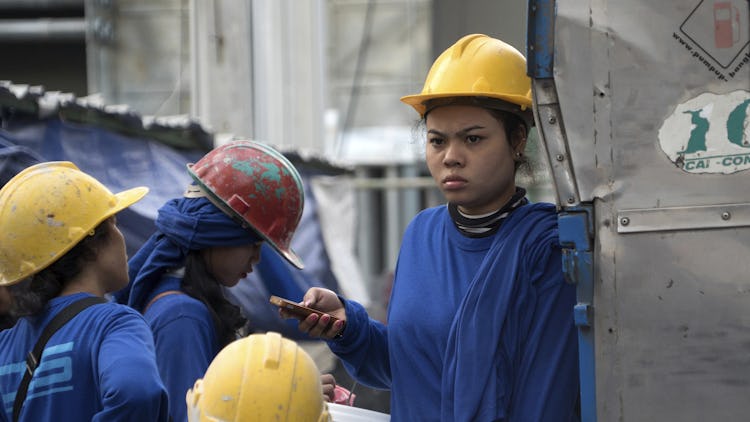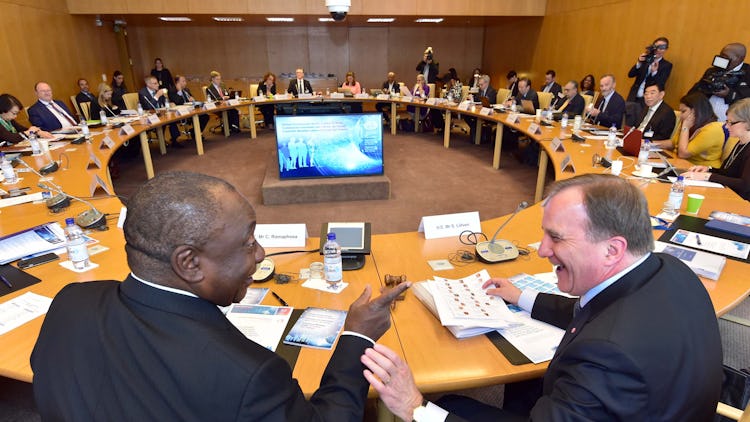Sharan Burrow: “We have had a very successful last term”
Sharan Burrow is running for a third term as Secretary-General of the ITUC. Arbetet Global caught up with the Australian labour leader to talk about the challenges ahead.
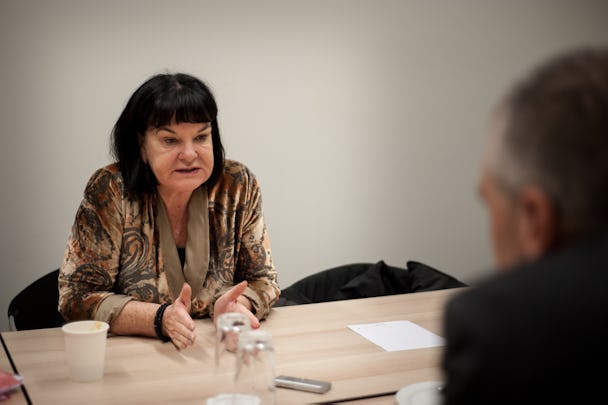
Sharan Burrow.
Being the head of the ITUC is a tough job and you have already done it for eight years. What motivates you to do it for another term?
– If you work with and for working people and can see the nature of our fractioned world you understand the amazing amount of work that has to be done. We need to build workers power, but also make sure that our power is used to change the rules.
– We have had a very successful last term since the last congress in Berlin.We are now 207 million strong, and growing! We were only 176 million before, so we have met our growth target. But even if we organized more, three out of five are now working in the informal economy. For me, organizing is central. So there’s a lot of work to be done. I’m totally committed to that work and have been a union activist for a long time. I’m motivated to consolidate what we have won.
The year is 2022. Let’s pretend that you look back at four more years as Secretary-General, what have you accomplished and how has the ITUC changed during these years?
– We will have built on the foundation of the successes of today. We would have tried to eliminate slavery. We took a big step to do what last term. We took on the state of Qatar and made an agreement what freed 1,5 million workers from slavery and another 500 000 will be freed next year. We also got a protocol on slavery. Today it has been signed by 27 countries but we need to expand it to 50. We also need to change the labour laws. But we are also building all sorts of infrastructure like labour courts and social dialog structures in work places.
– When you look at the inequality in the world, we all have been shocked by the fact that the global wage slump has been so dramatic. If we don’t organize the new generation of workers then inequality will worsen, not lessen. We are also building a global wage campaign. So if you ask me in 2022, depending on the mandate of the congress, we will see higher minimum wages and more collective bargaining.
– If we actually can change the rules of the way corporations are held to account, everywhere not just in their country of origin, then we will have succeed in changing the world for working people.
The ITUC annual Global Rights Index shows that democratic space was being constrained by governments in 54 countries in the last year, and in many countries physical violence and threats against workers has risen. In light of this negative trend, how should the ITUC go about building workers power?
– We need to organize. If we are not an organizing culture then you can’t build workers power. But we have shown that we can. Even in the bleakest of places, like Yemen, we have a trade union that is organising. If you go to places like Eritrea, they are working with their brothers in Ethiopia on peace arrangements. In Tunisia, the process of writing a constitution about peace and democracy was in fact lead by the unions in a social dialogue structure that lead to a Nobel peace prize. There is only one solution. We need to organize.
The world of work is changing. The division of labour is increasing, the gig-economy is growing and more jobs are being created in sectors that are harder to organize. How should the ITUC prepare for the future of work?
– First of all, you can organize anywhere. They told us that we couldn’t organize domestic workers. Now we have an international federation of 600 000 domestic workers, we are building networks and making sure that we fight to change labour laws to be more inclusive. – On platform economy, we see massive innovation. In your country Sweden, in Demark, Ireland and parts of the world you wouldn’t expect.
– In order to deal with the question of freelancers we have to change the competition so that we can barging for a fair contract prize. Today a journalist can be paid as little as 15 euro a day in Europe, that’s a scandal!
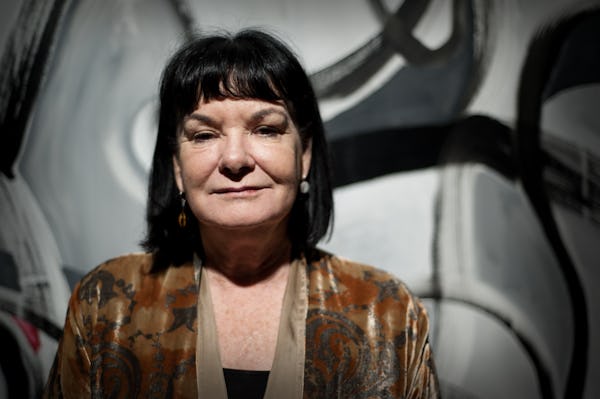
Sharan Burrow.
The climate summit COP24 is being held in Poland. What would you say to the millions of workers in the car industry when they demand that unions must fight for their jobs? How should the transition to a green, sustainable economy look?
– The car industry is not going anywhere, it’s just transferring to be electric so we want companies to transition. And we want that transition to be just. So you have to have a social dialogue.
But to produce a combusting engine is much more complicated than to produce an electrical engine, so jobs will be lost?
– Of course, it’s 400 parts or something, compared to two. But if you think about the jobs in the automotive sector then you need to think about mass transit. If we are going to reduce emissions we have to invest much more in public transport and we will see a change, more car sharing and a growing demand for public transport. It’s a supply chain, but it’s still about building cars, buses, trains or trams. Will the jobs shift? Yes. But there will still be automotive workers.
Women’s participation in the workforce is falling and in many countries, women’s rights are under attack. What should the ITUC do about this?
– We have actually established a floor of demands that have been recognized. The G20 recognizes that we have to raise women’s participation in the labour market. UN Women has picked what up. They know that in order to do that, we have to invest in the care economy. If you have child care, age care, education and vital public services then you not only create good jobs in those sectors, but you also provide a floor for women in those sectors so that they can participate in the economy. But we also have to change the dominant culture. The rise of misogyny and sexual harassment’s is unacceptable. The Me Too movement shows us that women are fed up with being mistreated and not respected. Silence can never be a condition of employment. Our union is fighting to change that and we are also winning at the bargaining table and through legislation.
Globally, we are seeing a wave of authoritarian leaders and the return of nationalism. In many places, nationalist parties are managing to attract workers votes. Why is this, and is it a problem for the labour union movement?
– No question about it. Peace, democracy and human rights is in our DNA. Democratic rights and freedom is what we are fighting for. If we don’t have democracy, what do we have? If people are so insecure that they are voting for false promises of right wing ideologies, then we are a voice at the front line. We are the biggest democratic force on earth and we are totally committed to peace and democracy.
Your challenger is claiming that the ITUC has become a top-down organization and vows to make it more democratic. What is your comment on that?
– Well, I think that is a campaign slogan. If you actually look at our record, we have built our campaigns with our affiliates from the ground and up. We don’t take on a global target, like Samsung, Qatar, or organizing domestic workers, unless we have affiliates who want to participate. I think there’s a lack of understanding on how the ITUC actually works. But if there are people who want their voices to be heard then we have to listen to that. I don’t think anybody would say that we haven’t been a much more activist, much more strategically focused movement, in the last four years. Our growth tells you that, our success tells you that and we want to do more of the same based on the mandate of the congress, because that’s what is important for me to implement.
